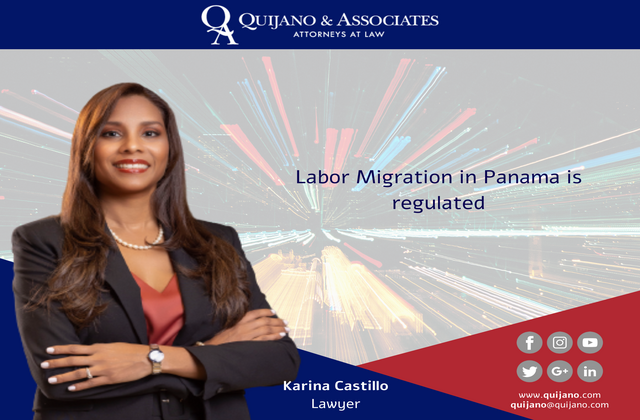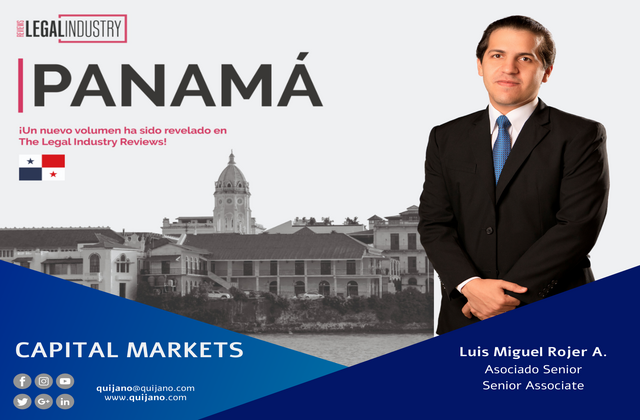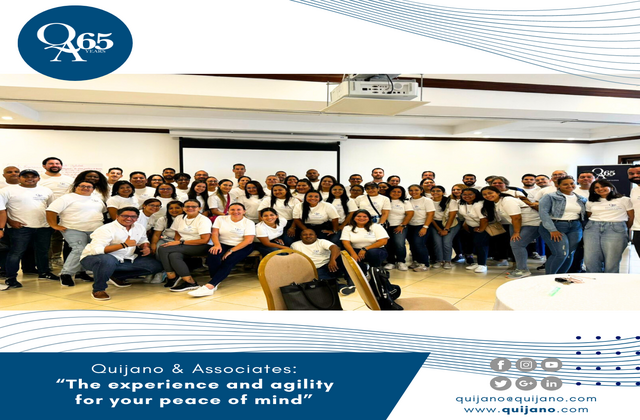Labor Migration in Panama is regulated

That by means of Executive Decree No. 6 of April 13, 2023, the Ministry of Labor, and Labor Development, regulates work permits in Panama.
The main objective of the Executive Decree is to develop the norms contained in Articles 17, 18 and 19 of the Labor Code, particularly where migrants are involved, through different categories of work permits. It also establishes the parameters for the granting of these work permits, their presentation, as well as the rights and obligations of migrant workers and their employers.
Within this regulation, a series of terms have been introduced with their respective definitions, which brings greater clarity for all migrant workers, as well as legal professionals, although many of these already have their definition in the various instruments that create the figure, however, introducing these terms in the same document that is related illustrates the reader and the user.
Among the relevant aspects introduced with this Executive Decree is that persons who have been granted a permanent residence permit by the National Migration Service may apply for any of the work permit categories established in the Labor Code and in this Executive Decree, regardless of the immigration status that led them to obtain permanent residence.
It also makes clear the obligation of all migrant workers to maintain a valid work permit granted by the Ministry of Labor and Labor Development, but in the same way, the employer has the responsibility during the entire term of the employment relationship that the migrant workers maintain their work permit in force.
Executive Decree No. 6 of April 13, 2023, lists the common requirements for all regulated work permits, however, each of the categories has particular requirements:
a) Filiation of the applicant before the corresponding instance;
b) Power of Attorney authenticated before a Notary Public;
c) Application through a lawyer;
d) Certificate issued by the National Migration Services where the migratory status of the applicant is stated;
e) Copy of the page of the passport where the photo and the general data of its holder appear or online validation with the RUEX or any other mechanism provided by the National Migration Service;
f) Copy of the processing card, provisional or permanent residence card, issued by the National Migration Service, or copy of the permanent resident card issued by the Electoral Tribunal of Panama, authenticated by said entity, as the case may be.
The Ministry of Labor and Labor Development, classifies in seven (7) categories the work permits it will authorize:
I. Equivalent to local labor:
a) Migrant workers with more than 10 years of residence in the country.
b) Migrant workers with a spouse of Panamanian nationality:
b.1. In case of Marriage in force.
b.2. By parental authority, in case of divorce.
b.3. By parental authority, in case of widowhood.
c) Migrant workers with special permanent residence and must accompany the application with a letter of recommendation from the President of the Republic and is granted for an indefinite period of time.
d) For family regrouping, such as being mothers or fathers of a Panamanian person with condition of dependency.
e) By the Treaty or Agreement Panama – Italy. It is granted for an indefinite period of time.
f) For dependents of diplomatic, consular, administrative, and international organizations accredited in the Republic of Panama. Which is granted for the term of the mission.
It is included within this category the indefinite Work Permits granted according to Executive Decree N°140 of August 2, 2012.
II. Percentages authorized by the Labor Code;
a) Migrant workers hired within the 10% of regular personnel.
b) Migrant workers hired within 15% of specialist or technical personnel. The same must provide a letter of reference of previous work duly legalized and the certificate or diploma of technician and in turn the employer must comply with the transfer of knowledge and training of national personnel through 3 options:
b.1 To create a technical teaching center within its facilities;
b.2 To adopt training programs with universities or educational centers; or
b.3. To submit evidence of their field training program.
c) Migrant workers hired as trust personnel within 15% of the total number of workers.
d) Migrant workers hired by a Micro or small employer (MIPE). For companies with less than 10 workers including the migrant worker.
e) Migrant workers hired as trustworthy personnel of companies with transactions that are perfected, consummated or take effect abroad. This work permit is not subject to compliance with the percentage limits.
III. Special Laws;
a) Migrant workers hired as executives by companies in the Colon Free Zone.
b) Migrant workers working at the City of Knowledge Foundation.
c) Migrant workers hired by an employer within the Panama Pacifico Economic Area.
c.1 Migrant workers hired as part of the 10% of regular personnel.
c.2. Migrant workers hired within the 15% of specialist or technical personnel.
c.2. Migrant workers exceeding 15% of the technical or specialist workers.
c.3. Workers of companies with less than ten workers.
c.4 The workers of a company exclusively engaged in maintaining offices to conduct transactions that take effect abroad.
d) Migrant workers hired by an employer within Free Trade Zones.
d.1. Migrant worker hired within the 10% of the total workers.
d.2. Migrant worker hired within the 15% as trust personnel or as specialized or technical personnel.
e) Who are dependents of a migrant worker who has a Visa or Residence Permit by means of special laws (It is granted according to the applicable permit).
f) Migrant workers who have a Temporary Multinational Company Personnel Visa for the rendering of services related to Manufacturing or companies under the EMMA Law.
g) Migrant worker hired as pilot or specialized personnel of a commercial aviation company.
IV. Work Permits established by means of Special Economic and Investment Policies;
The migrant worker may apply for this work permit:
a) From specific countries that maintain friendly, professional, economic and investment relations with the Republic of Panama, in case of investment.
b) As permanent resident qualified investor.
c) As resident under own economic solvency.
d) As special categories of special economic and investment policies in force.
V. Humanitarian Protection;
This category is recognized for the migrant worker under the protection of the Panamanian State:
1. For Migrant worker:
a) Who has been admitted to refugee proceedings;
b) Who has been recognized as a refugee; and
c) Refugee with permanent residence.
2. For asylee migrant worker;
3. For stateless migrant worker;
4. For trafficked migrant worker;
5. For migrant worker with temporary status due to humanitarian reasons.
Migrant workers within this category are included in the percentages established in Article 17 of the Labor Code, considered local labor.
VI. Special Migratory Conditions;
These are Work Permits for migrant workers who are within the following categories:
a) From specific countries, known as specific countries, that maintain friendly, professional, economic, and investment relations with the Republic of Panama, due to work.
b) With residence obtained from the General Migratory Regularization program.
c) Professionals.
d) For family regrouping for dependents of residents.
e. Students may apply for a work permit on their own account or on behalf of others.
It is not necessary to request authorization for the accomplishment of professional practices if there is an agreement between the educational center and the entity where they are going to develop the internship.
VII. Temporary workers
Migrant workers shall be considered those persons hired to carry out work that responds to special, specific seasonal and/or extraordinary needs of a company for a determined period, which shall not exceed three months, which may be extended for three periods of the same term.
Work permits under this category shall be for migrant workers:
a) Temporary technicians (specialized or technicians in professions that are not protected by law).
b) Sportsmen.
c) Artists.
d) Night show workers.
With this Executive Decree new terms are established for resolving the applications, for notifications and appeals for reconsideration, so that a more expeditious process with more defined terms and steps is envisioned:
I. Applications: There will be 40 working days to resolve the Work Permit applications, as from the following working day of the date of presentation of the application, provided that it meets all the requirements. After this time, an expediting of the process may be requested.
Only one migrant worker will be allowed per application, i.e., collective applications will not be admitted, except for permits for migrant workers hired by an employer as artists, in the case of groups.
II. Notification: Within five (5) working days after the resolution is issued, an e-mail is sent to the attorney, who must be notified within the following 15 working days personally or by memorial, if not notified within that period of time, the migrant worker will be notified, so that the attorney can be notified within the next 15 working days by means of written petition; but if after all that time the notification is not presented, the resolution authorizing the work permit will be automatically revoked and the file will be archived.
III. Appeal for Reconsideration: Only an appeal for reconsideration may be filed against the resolution that denies the work permit, which must be announced at the time of notification and must be sustained within the following 5 working days, and a period of 15 days may be requested in the appeal to provide evidence. The appeal for reconsideration must be resolved within 5 working days after the appeal has been sustained, and its notification will be made in the same way as the original resolution is notified.
Among other particularities of this new regulation, is that a certification may be requested indicating that the work permit application was filed and that it is in process, which is valid for 30 working days; but this does not authorize to work, unless it is an extension that has been filed before the expiration of the Work Permit, or unless the authority determines otherwise, and for companies with more than twenty (20) workers, a certification issued by an Authorized Public Accountant must be presented instead of the Social Security Fund form.
The migrant worker authorized to work in a company may not be transferred or voluntarily transferred to any other company without the prior authorization of the Ministry.
Likewise, Article 153 introduces 11 causes for which previously approved work permits may be cancelled and Article 154 establishes the sanctions that may be imposed on offending employers, which shall be B/.500.00 the first time, for each migrant worker, B/.1,000. 00, for each worker, the second time, B/.15,000.00 for the third time, in addition to the pecuniary sanction, the suspension of the Notice of Operations may be requested for 30 days and up to the cancellation of the Notice of Operations the fourth time, with the obligation to immediately dismiss the unauthorized migrant workers, paying them their liquidation.
Employers who keep migrant workers under contract will not be sanctioned as long as it is proven that the work permit is in the process of extension if the request for extension was filed before the expiration of the work permit.
This regulation gives the possibility to carry out online procedures detailing the procedure to be followed in each case, which goes hand in hand with the trend of the digital world.
For more information Quijano & Associates has a Labor Migration Department, updated with this new regulation that will be able to advise you in your procedures, so do not hesitate to contact us at quijano@quijano.com.




